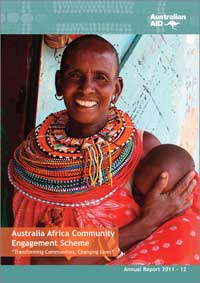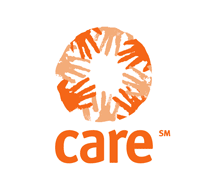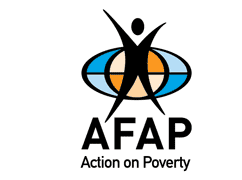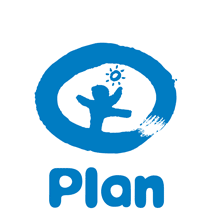This report highlights the achievements of the Australia Africa Community Engagement Scheme.
Use the menu on the left to navigate to each section of the report.
Key figures
AACES has had a positive impact on food security by assisting:
- 13,000 households to adopt new agricultural technologies that will increase farm yields
- 3,300 households to access farm inputs such as tools, seeds and livestock
- 12,500 farming households to access new or improved agricultural services
- 3,500 smallholder farmers to join farmer associations that provide technical support, information and knowledge sharing
- 28,700 people to increase awareness on their rights to land, food and access to government agricultural services
AACES maternal and child health programs reached over 51,000 people, helping:
- more than 30,000 people access a modern family planning method
- more than 20,000 children receive life-saving vaccines
- more than 1,700 babies to be delivered through clean and safe practices.
AACES programs provided safe water, sanitation and hygiene services to communities, supporting:
- an additional 42,000 people to be able to access safe and sustainable water
- more than 18,500 people gain access to appropriate sanitation
- the construction of more than 8,000 hand washing facilities.
Report summary
The Australia Africa Community Engagement Scheme (AACES) is a partnership of the Australian Agency for International Development (AusAID), ten Australian non-government organisations (NGOs) and their Africa-based partners. AACES will be implemented over five years (2011–16) in 11 African countries, namely: Ethiopia, Ghana, Kenya, Malawi, Mozambique, Rwanda, South Africa, Tanzania, Uganda, Zambia and Zimbabwe.
The $90 million program focuses on community-based interventions in the sectors of food security, maternal and child health and water and sanitation with particular attention to women, children and people living with disabilities. In the first year of AACES, significant progress was made towards increasing marginalised people's access to necessary services.











